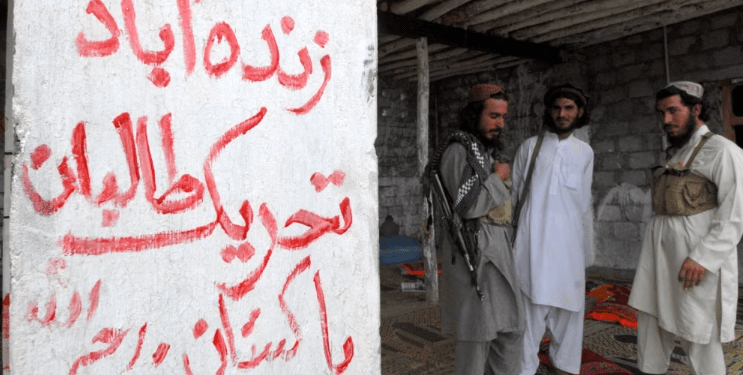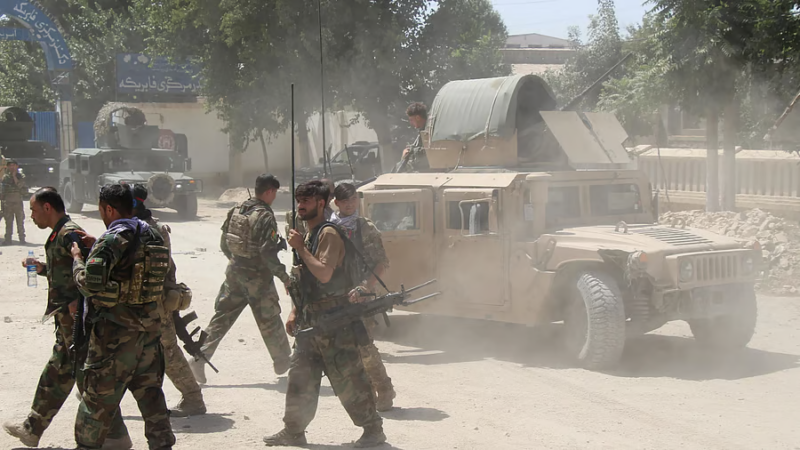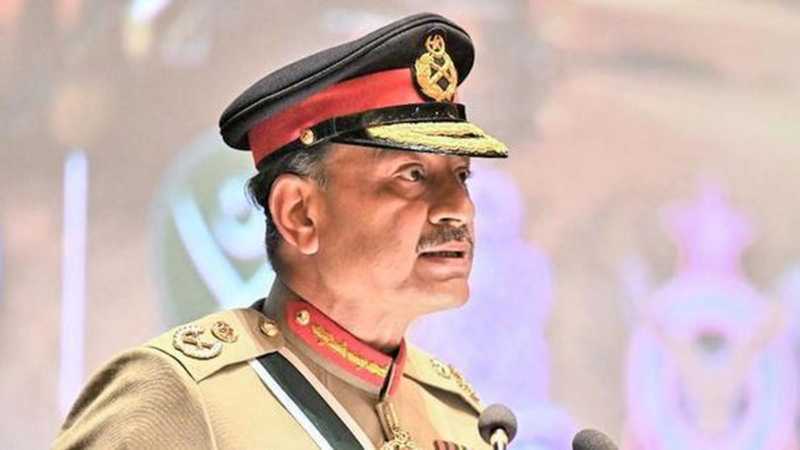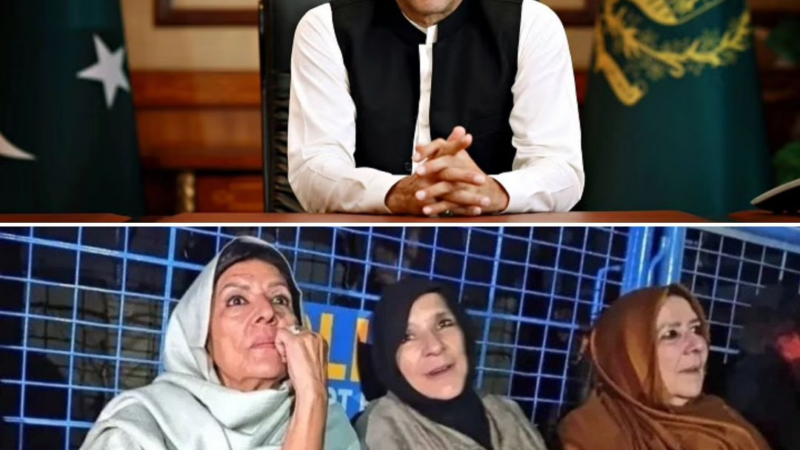Pakistan Requests US Assistance Against Taliban in Pakistan

Pakistan’s army chief is in Washington this week seeking U.S. assistance against what Islamabad alleges are terrorist havens in neighboring Afghanistan.
General Asim Munir is trying to convince U.S. security and defense officials that militant groups such as Tehreek-e-Taliban Pakistan (TTP) and Islamic State’s Khorasan offshoot (IS-K) pose a threat not only to Pakistan but also to U.S. and global security, experts say.
“In seeking U.S. sympathy and support for Pakistan’s counterterrorism concerns, he may note the many years of U.S.-Pakistan military cooperation that includes some counterterrorism collaborations, as well as many years of military education and training exchanges,” said Michael Kugelman, director of the South Asia Institute at the Wilson Center.
“He will likely also note that both countries face threats emanating from Afghanistan, whether IS-K or TTP,” Kugelman added.
On Wednesday, Munir met with Secretary of Defense Lloyd Austin and discussed “recent regional security developments and potential areas for bilateral defense cooperation,” according to a brief statement from the Pentagon.
Despite the withdrawal of troops from Afghanistan over two years ago, the United States has retained what U.S. officials term over-the-horizon capabilities in the region: the ability to strike targets in response to security threats. In July 2022, a U.S. drone strike killed Ayman al-Zawahiri the former al-Qaida chief in Kabul.
On Wednesday, Jan Achakzai, Pakistan’s acting information minister, posted on X and subsequently deleted a series of proposed actions in response to a deadly attack on a military camp in northwest Pakistan on Tuesday. The attack, involving a vehicle-borne blast and shooting, resulted in at least 23 deaths and over 40 injuries, according to Pakistani authorities.
Achakzai suggested, among other measures, that Pakistan should propose offering U.S. drone bases to target terrorist sanctuaries in Afghanistan.
The de facto Taliban authorities in Afghanistan have consistently rejected Pakistan’s allegations, saying they do not permit groups and individuals to pose threats to any country from Afghan soil.
Pakistan has grappled with the TTP insurgency for nearly two decades, but Pakistani officials claim that the group has escalated its terrorist activities since the Afghan Taliban regained power in Afghanistan in 2021.
US response
Before coming to Washington, Munir met Thomas West, the U.S. special representative for Afghanistan, in Islamabad.
“The United States stands with Pakistan against terrorism in the region,” West wrote on X, adding that the TTP poses “grave security challenges.”
While expressing sympathy and understanding, the U.S. — at least for now — does not seem to be considering military action specifically against TTP hideouts in Afghanistan.
“With respect to relations between Pakistan and Afghanistan, obviously we support diplomatic resolution to all of the various issues between those two countries,” State Department spokesperson Matthew Miller told reporters on Monday.
The United States has funded several counterterrorism capacity-building programs in Pakistan focused on law enforcement and justice, Miller said Wednesday when asked what kind of support the U.S. would offer Pakistan.
Washington’s position appears grounded in its own risk assessment.
A recent U.S. intelligence assessment indicated that “al-Qaida has reached its historical nadir in Afghanistan and Pakistan” is unlikely to revive itself.
The other terrorist group of particular U.S. concern, IS-K, has reportedly been weakened by Taliban counterterrorism operations, according to the assessment.
Senior U.S. officials have said they will hold the Afghan Taliban accountable for their counterterrorism commitments made under the U.S.-Taliban Doha agreement.
“The U.S., and particularly the current administration, is fed up with military involvement in South-Central Asia,” Robert Grenier, the former head of counterterrorism at the Central Intelligence Agency, told VOA in written comments.
“Absent attacks on U.S. interests clearly emanating from Afghanistan, the U.S. will remain neutral,” he said.
Proxy turned enemy?
Since their emergence as an extremist Islamist movement in Afghanistan in 1990s, the Taliban have often been labeled a proxy group for the Pakistani military and intelligence.
During the U.S.’s two decades of war in Afghanistan, former Afghan and U.S. officials consistently accused Pakistan of providing shelter and support to Taliban insurgents.
Many Pakistanis celebrated the Taliban’s return to power in Afghanistan in 2021, including former Prime Minister Imran Khan, who declared that Afghans had broken the “shackles of slavery.”
“The [Afghan] Taliban want to assert their independence from their former patron, and that is being expressed through defiance and an unwillingness to help Islamabad if it doesn’t serve the Taliban’s interests,” said Kugelman of the Wilson Center.
Pakistan has recently started deporting tens of thousands of Afghan refugees and undocumented migrants, a move independent observers believe is intended to exert pressure on the Taliban to adhere to Islamabad’s security demands.
About 3 million Afghan nationals live in Pakistan, and Pakistani officials say some of them are involved in terrorist and criminal activities.
Some Pakistani officials have called on the country’s powerful army to take unilateral action against purported TTP havens inside Afghanistan.
For years, the Pakistani military executed large-scale operations against TTP in the country’s northwestern regions bordering Afghanistan, but the group, which fights for a Shariah-based regime in Pakistan, has managed to survive.
Until the Taliban seized power, Pakistani officials advised the former Afghan government to negotiate a political settlement to end the Taliban insurgency in Afghanistan.
Now, the Afghan Taliban say TTP is an internal issue for Pakistan to handle.






